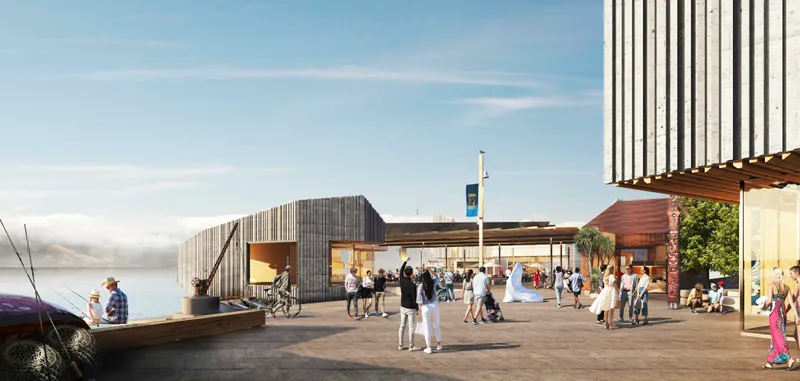
Early last year the Government announced a spend of $12 billion, the largest commitment by any Government, to address our aged infrastructure.
I wrote about this at the time, and suggested that we urgently needed new ways of thinking and heightened collaboration to achieve more holistic long-term outcomes, particularly in infrastructure development.
What I didn’t know was that a global pandemic was looming and New Zealand was days away from a national lockdown. And here we are again.
For the best part of 18 months, many of us in the industry have found ourselves in endless online meetings, creating lists of projects that both central and local Government could re-prioritise, provide stimulus funding for, and get underway as soon as we return “back to normal”.
While Delta has changed the game, the country will eventually work its way towards a reset. This reset should include critically assessing our aged infrastructure and reviewing what needs to be done so it can support our communities in the long-term.
However, the more immediate problem we face – making this reset harder to achieve – is that we are seeing a critical shortage of fresh thinkers and, increasingly, collaboration is becoming harder to achieve. This has been brought into sharp focus in the public sector, where accountability is paramount, and both political and public expectations can be misaligned.
When the Government announced its funding of “shovel-ready” infrastructure projects, the hope was to kick-start the economy in the wake of the first national lockdown last year. The need was there, the projects were identified, and best of all the funding was allocated. Our communities, contractors and consultants from North to South awaited eagerly to be given the go-ahead. Instead, the official list failed to materialise and the opportunity take advantage of a ‘reset’ was lost.
The impact of Covid-19 with budget reallocations, service cuts, projects being deferred, and the underlying reliance on central Government funding, has put enormous strain on project delivery. With government agencies stretched further than ever before, and projects becoming increasingly complex, it’s no wonder things are not happening as fast as we would all like.
Agencies acknowledge they need assistance prioritising and planning projects. There is additional pressure to prioritise those projects with a sustainability focus and to engage meaningfully with local communities.
But the solutions to these problems and pressures are within reach.
Since Covid hit our shores early last year, I have spoken with local authorities around the country, to understand how they’ve been faring, what their key issues are and how the private sector can help.
Councils in many regions are very aligned: funding uncertainty, resource pressures, and internal expertise are key factors impacting their ability to address their respective project needs.
If we continue with status quo something is bound to buckle. With these pressures, its unsurprising that councils are groaning under the strain and, as a result, it’s hard to deliver large scale masterplans and critical infrastructure projects for communities country-wide. It’s vital they reach out and ask for private sector support to produce the best long-term outcomes.
Public and private sector collaboration was at the heart of Christchurch’s Central City Blueprint, which shaped the rebuild of our second largest city, as well as Auckland’s Waterfront Plan, which shaped the development of the award-winning Wynyard Quarter precinct, and the city’s waterfront. It can be done – and done well. These are just two examples of how, when true collaboration occurs, the best long term infrastructure outcome is produced – for everyone involved.
And now it’s Kaikōura’s turn. Bringing together complex public and private sector initiatives is the development of Kaikōura’s heritage Wakatu Wharf.
Led by the Kaikōura District Council in partnership with Central Government, the initiative takes advantage of a $9 million injection by the Provincial Growth Fund. Working alongside the public sector, we’re designing infrastructure to future-proof the town’s working wharf.
Engaging the private sector on this critical piece of infrastructure means the Council is presented with different ways of solving the same problem. It means access to external specialists in masterplanning, mana whenua and environmental and ecological kaitiakitanga.
They’ve put up their hand, asked for help and will ultimately deliver for the Kaikoura community.
New challenges demand fresh thinking and new angles of enquiry. While we never could have foreseen the challenges presented in a Covid-19 era, I see a future where bold leadership, and innovative solutions will be the norm. Collaborative behaviours and integrated thinking will be the expectation.
For this to happen councils need to reach out and ask for support. Together we can strive for greater alignment, and share resources, ideas, and experiences to deliver the very best outcomes for our communities.
Rod Marler leads architectural firm Warren and Mahoney's 'Early Stage Strategy' Consulting Team.